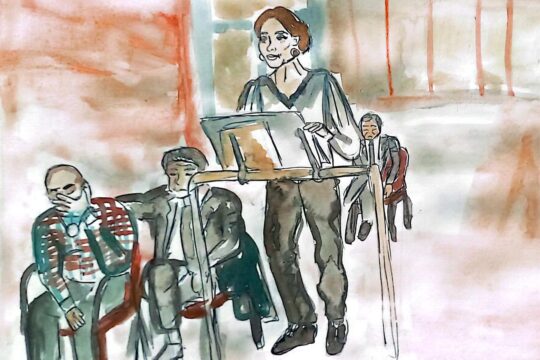Syria plunged back into bloodshed Tuesday as the UN suspended aid convoys and the United States and Russia wrangled over the blame for air strikes that shattered a short-lived truce.
US officials accused Russia of carrying out Monday's deadly attack on a humanitarian convoy, three days after Moscow reacted with fury to an American-led raid that killed dozens of Syrian troops.
Washington and Moscow are the joint sponsors of an international effort to impose a ceasefire on Syria's five-year-old civil war, and the row undermined efforts to reopen the dialogue.
After a short meeting in New York of the 23-nation International Syria Support Group (ISSG), US Secretary of State John Kerry tersely insisted that efforts to revive the truce were "not dead."
The foreign ministers, convened by Kerry and his Russian sparring partner Foreign Minister Sergei Lavrov, said they would try to meet again this week in talks parallel to the UN General Assembly.
But it was hard to see how the US-Russian mediation could proceed amid the row over the latest strike, which the Red Cross said had destroyed 18 aid trucks and killed about 20 civilians.
"All of our information indicates clearly that this was an air strike," President Barack Obama's national security spokesman Ben Rhodes said.
"There only could have been two entities responsible, either the Syrian regime or the Russian government. In any event, we hold the Russian government responsible for air strikes in this space."
Two Russian SU-24 ground attack jets were operating in the area where the aid convoy was struck in the Aleppo region late Monday, another US official told AFP.
"The best evaluation we have is that the Russians carried out the strike," he added, speaking on condition of anonymity.
- 'Terrorists and bandits' -
Previously, US officials had said that even if Syrian President Bashar al-Assad's forces had carried out the attack, Moscow would share the blame as the Syrian regime's sponsor and guarantor in truce negotiations.
Moscow reacted "with indignation and anger" at what it alleged were attempts by "protectors of terrorists and bandits" to blame Russia or Syria for the attack.
The Russian foreign ministry said the "unsubstantiated, hasty accusations" seemed designed to "distract attention from the strange 'error' of coalition pilots."
This was a reference to Saturday's bombardment of a Syrian military base by the US-led coalition fighting the Islamic State group, an attack which Washington said was a mistake.
The Russian military, meanwhile, said the aid convoy seemed to have been the victim of a mysterious fire it said had erupted while insurgents battled Syrian forces nearby.
Amid the recriminations, the ISSG meeting in New York made little headway.
Syria's beleaguered opposition sneered, branding the international community weak for not immediately taking action against the Assad regime for breaking the truce.
Opposition leader Riad Hijab, head of the rebel High Negotiations Committee, said the ministers had shown "total weakness" in not confronting Moscow and Damascus over the air strike.
But US President Barack Obama backed his top diplomat Kerry, saying there was "no ultimate military victory to be won" and calling on nations to pursue the "hard work" of diplomacy.
The mood at the hour-long talks was grim and the brief meeting inconclusive, but it allowed Kerry and UN peace envoy Staffan de Mistura a chance to insist that the process has not collapsed.
Kerry's spokesman John Kirby said the ministers had agreed that, "despite continued violence," they would still use the agreement between the United States and Russia as a basis for more talks.
The ISSG is thus to reconvene in New York this week.
"Quite frankly, the Kerry-Lavrov process is the only show in town and we've got to get that show back on the road," Britain's Foreign Secretary Boris Johnson admitted.
France was more openly skeptical, President Francois Hollande telling opposition figures that the truce had not lasted as long as the time it had taken to declare it.
His foreign minister, Jean-Marc Ayrault, warned that trust was breaking down in the US-Russian partnership and said other countries should help push the process forward.
"It was a fairly dramatic meeting, the mood was gloomy. Is there hope? I can't answer that yet, but we should do everything we can," Ayrault told reporters.
"The Russians and the Americans can't do it alone."
A short distance across Manhattan at the UN meeting, Secretary General Ban Ki-moon denounced the "sickening, savage and apparently deliberate attack" on the convoy.
And Germany's Foreign Minister Frank-Walter Steinmeier confirmed that the convoy bombing had poisoned the mood at the ISSG, where delegates were "heavy with indignation."
- Fighting rages -
Meanwhile, air raids and shelling continued on frontlines around Syria, where more than 300,000 have died since Assad began efforts to suppress a popular revolt.
The Syrian Observatory for Human Rights said at least 27 barrel bombs -- crude explosives packed with scraps of metal -- were dropped on Aleppo on Tuesday.
The International Federation of Red Cross and Red Crescent Societies said Monday night's raid destroyed at least 18 of 31 vehicles and a Red Crescent warehouse.
The strike came just hours after the Syrian army announced the end of the truce Monday, accusing rebels of failing to "commit to a single element" of the US-Russia deal.



